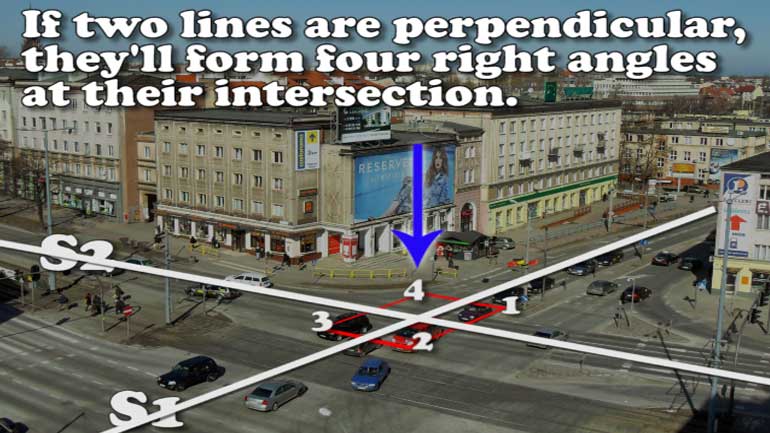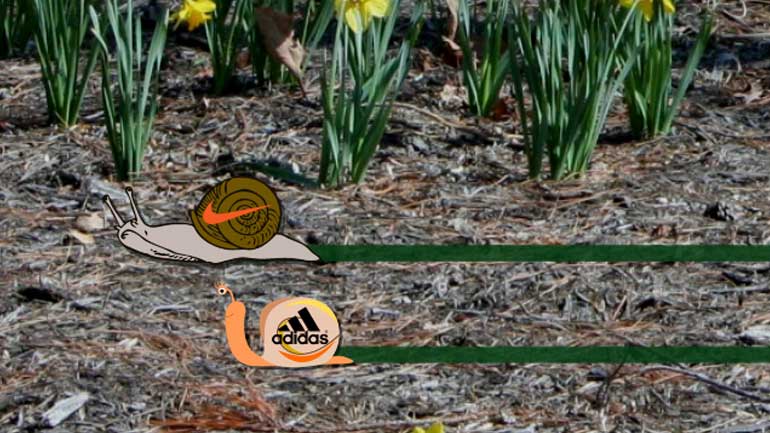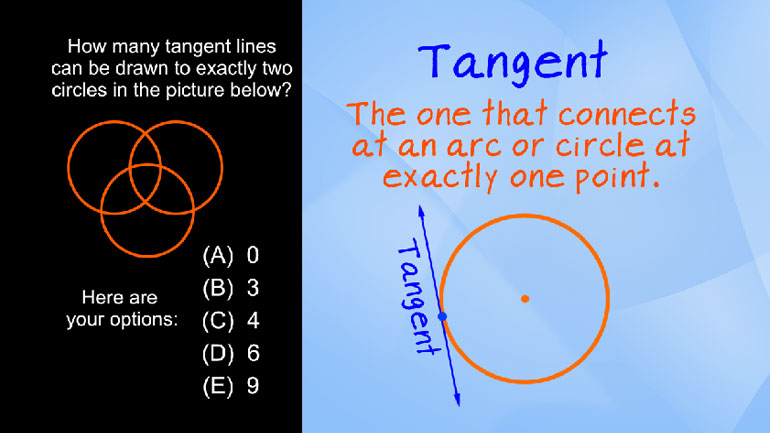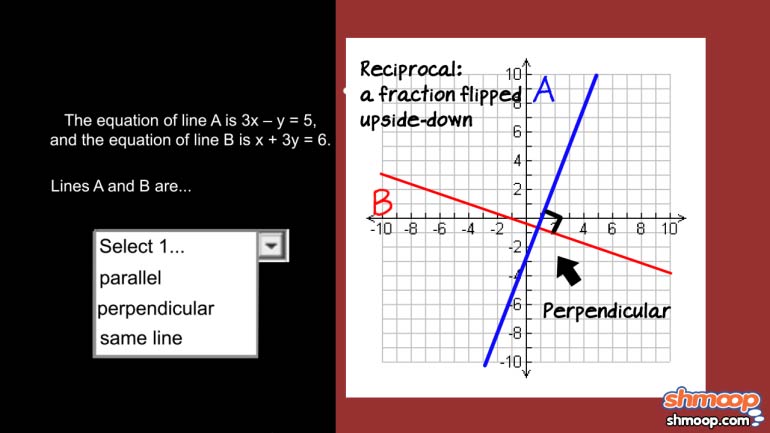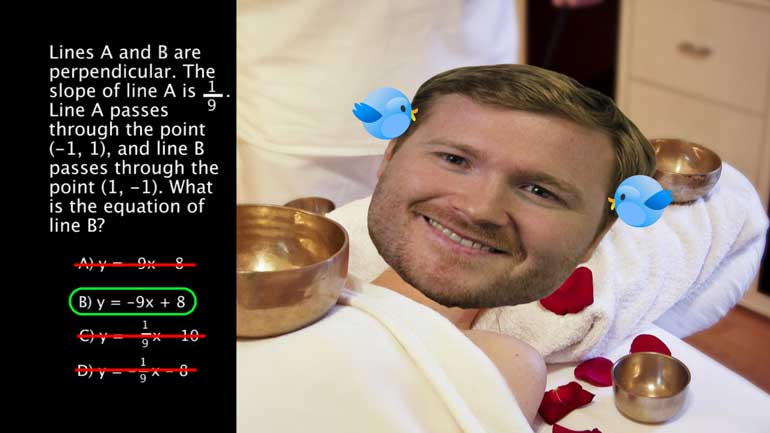ShmoopTube
Where Monty Python meets your 10th grade teacher.
Search Thousands of Shmoop Videos
Parallel and Perpendicular Lines Videos 23 videos
This video explores parallel lines and transversals: how to identify them both on a math test and in real life urban planning. What do the consecut...
To prove lines are parallel, you need a third line. We at Shmoop (and the rest of the world) call it a transversal.
CAHSEE Math 4.5 Algebra I 229 Views
Share It!
Description:
Algebra I Drill 4, Problem 5. What is the slope of a line that is parallel to the graph of 8x + 4y = 5?
Transcript
- 00:03
You look like you could use a little more shmoop in your life…
- 00:06
What is the slope of a line that is parallel to the graph of 8x + 4y = 5?
- 00:12
Here are the potential answers…
- 00:19
So… what is this question asking?
- 00:20
Can we take this jumbled mess and mold it into something we can work with?
Full Transcript
- 00:24
Namely… into the form of y = mx + b? Let’s give it a shot.
- 00:30
First we need to switch the order of the terms.
- 00:32
When we subtract 8x from both sides, we get 4y equals negative 8x plus 5.
- 00:40
Then we need y to stand alone – so we divide both sides by 4
- 00:44
to get y = -2x plus 5 fourths.
- 00:49
Our slope is negative 2.
- 00:51
But the question asks for the slope of the line PARALLEL to this one.
- 00:55
Oooh – trick question, kinda. Parallel lines all have the same slope.
- 00:59
So… nice try, but we’re onto you, Mister Problem Maker.
- 01:03
Our slope is negative 2, meaning the line slopes downward like this…
- 01:09
So our answer is A. As in, "Avalanche."
Related Videos
CAHSEE Math: Algebra and Functions Drill 5, Problem 3. Solve the equation.
This video explores parallel lines and transversals: how to identify them both on a math test and in real life urban planning. What do the consecut...
To prove lines are parallel, you need a third line. We at Shmoop (and the rest of the world) call it a transversal.
A sequel to the 1989 classic Segments, Lines, and Videotape, this video will change the way you think about lines, segments, and rays. Unless yo...

